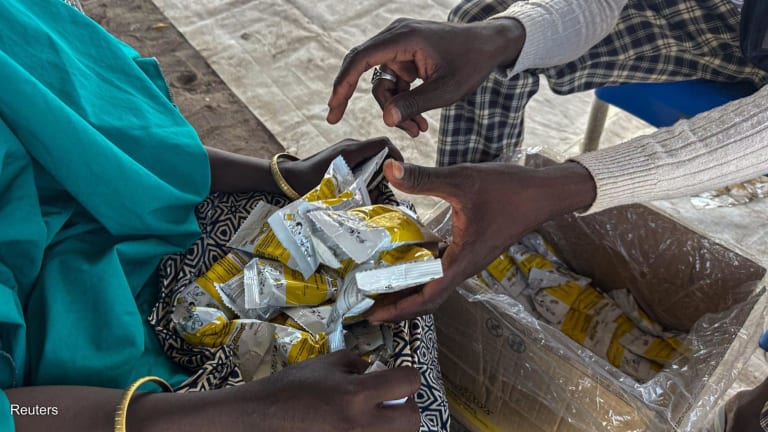
MANILA — Located 2,800 meters above sea level, Quito, Ecuador’s capital, has low to no transmission of malaria but the city hasn’t escaped the growing problem of noncommunicable diseases — one in particular, child obesity.
“During the last few years, we saw a rise in NCD patterns among children and youth populations in our city,” Quito Mayor Mauricio Rodas told Devex. “For example, 30 percent of our children suffer from [being] overweight or obesity — I’m talking about children from 6-12 years of age — that’s really worrisome.”
As in many cities around the world, children in Quito are now more exposed to unhealthy food and sugary snacks. Rodas mentions a recent study that found schoolchildren in Quito consuming large amounts of sweetened processed beverages and soft drinks, as well as fast food with high fat content, rather than more healthy food options such as vegetables and fruits.
In 2015, the local government launched a project called “Salud al Paso,” to promote a healthy lifestyle and diet in order to prevent the development of chronic illnesses such as diabetes and hypertension in its citizens. This was to be done through a number of interventions, including health screenings for early diagnosis and care provision, and counseling.
A peek into Bloomberg's new public health initiative
The Partnership for Healthy Cities was launched as part of Michael Bloomberg's appointment as World Health Organization global ambassador for noncommunicable diseases. But it has much to reveal about how Bloomberg's foundation works in the area of public health.
Last March, the government launched a more targeted intervention for children in schools. Dubbed “Pilas con las Vitaminas,” supported by Bloomberg Philanthropies under the Partnership for Healthy Cities, the project aims to promote better knowledge, attitudes, and practices around healthy eating. The project will provide healthier food options in school district cafeterias and include an educational component for children, teachers, and parents.
Six schools are part of the pilot, but the plan is to increase the number to 21.
However, Rodas acknowledges that the local government can't effectively promote health and the prevention of NCDs alone. The city needs a more holistic and strategic response to ensure children are consuming healthy food items outside school cafeterias — support from other members of government on initiatives targeting healthy food consumption is critical.
Regulating aggressive advertisements promoting unhealthy food snacks that reach large swaths of the population, for example, is a responsibility of central government, he said.
“All levels of government should be part of this, [we] should work together,” Rodas continued. “I think it would also be useful if [we were] more focused on the promotion of health. I think that’s something that’s lacking in Ecuador ... money should be focused on communication about healthy lifestyles ... in promoting sports ... and in educating pregnant women about the kind of food that they should provide for their babies.”
This is a challenge he hopes the leaders attending the upcoming high-level meeting on NCDs will address.
See more from this miniseries:
► Cities and NCDs: Curbing excess salt consumption in Ouagadougou
► Cities and NCDs: The struggle toward a smoke-free Kathmandu
► Cities and NCDs: In Santo Domingo, cars cause more than congestion
On what Rodas’ thinks should be discussed, “I would say many things, but I think the main one should be, how to provide the necessary resources and budgets to the promotion and prevention of health, and particularly the control of NCDs. How can we allocate the necessary money for that? And how can we bring everyone to the table — national governments, local governments, NGOs, international organizations — in order to build a strong partnership on this and to bring also the private sector to tackle these issues more effectively,” Rodas finished.
This is part of a miniseries on how cities are tackling NCDs in the line up to the third United Nations high-level meeting on NCDs. The cities featured here are all part of Bloomberg Philanthropies’ Partnership for Healthy Cities.
For more coverage of NCDs, visit the Taking the Pulse series here.





